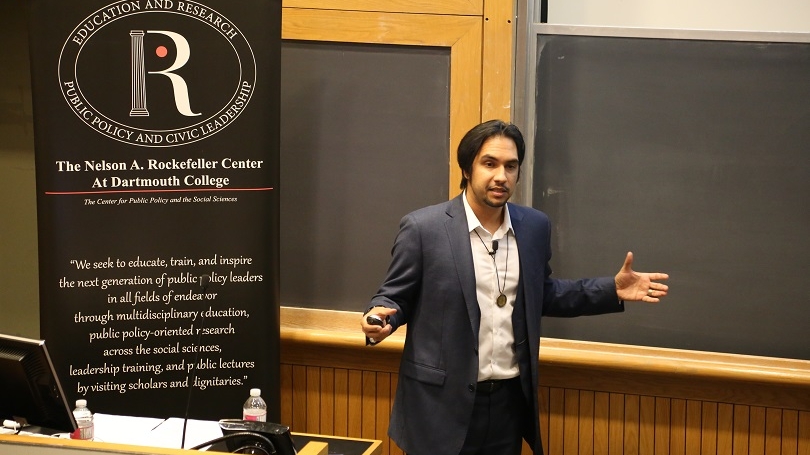
Menu
- Public Policy
- Leadership
- Funding
- News & Events
- About the Center
Back to Top Nav
Back to Top Nav
Back to Top Nav
Back to Top Nav
Graduating in the Class of 2004, Janos Marton '04 attributes Dartmouth as the place where he got his “intellectual bearings and found a lot of [his] passions.” In an interview, he remarked that “When it comes to criminal justice, taking the raw emotional feelings I had behind it and translating that into an understanding of how the system works propelled me into a career that I have.”
Throughout his transitory careers, Marton noted that there has been a continuous focus on detail and aiding those directly impacted by the system. Evidently, he has pursued intellectual engagement with direct community impacts. The socioeconomic issues conflated with mass incarceration have since led to Marton’s involvement in JustLeadershipUSA, a national advocacy organization for decarceration. The organization is committed to cutting the correctional population in half by 2030 through the empowerment of communities most harmed by mass incarceration, including groundbreaking organizing efforts for those inside and coming from prison.
As part of Dartmouth’s celebration of Martin Luther King Jr., the Rockefeller Center hosted Marton, who spoke for one hour to a full auditorium in Rockefeller 003 on mass incarceration in the United States.
Marton began his lecture with a brief overview of policies that have led to the dramatic increase in the prisoner population since the 1970s, citing “War on Drugs” policies and the chronic underinvestment in vulnerable campaigns. He then transitioned into JustLeadershipUSA’s campaign to close the Rikers Island prison complex. According to Marton, the campaign against Rikers was initiated to close down this institution continuously accused of civil rights violations and other abuses; as Marton explained, the thinking within the organization was that its members could not credibly talk about criminal justice reform while such an egregious offender remained open in its home base of New York.
Marton also described the advocacy model used in the #CloseRikers campaign. To mobilize individuals and organizations, JustLeadershipUSA used a combination of grassroots tactics to rally the public and top-down outreach to get big donors and other civil rights organizations to sign on. To raise awareness, public demonstrations and marches were held. And to raise pressure on key policymakers, Marton says that “birddogging” tactics were used, citing in particular the practice of questioning New York City Mayor Bill DeBlasio at every possible opportunity and in every possible venue.
To close his lecture, Marton talked about three things. First, he mentioned that since the #CloseRikers campaign succeeded in getting legislation passed to close Rikers Island, JustLeadershipUSA has shifted its goals to providing input on how to implement the phasing out of the prison complex. The organization is also working to expand its operations to other parts of the United States. One area where JustLeadershipUSA is most heavily involved in is Milwaukee, where the organization is seeking the closure of the Secure Detention Facility. Second, Marton talked about how criminal justice reform will require more than just closing prisons and jails; specifically, he contended that district attorney elections must be made more competitive. Marton also recommended that those sympathetic to the cause of criminal justice reform should seek ways to organize at the local level, invest in directly impacted communities, and avoid using othering language such as “convict” and “felon.”
Written by Brian Bliek ’18 and Alexa Green ’19, Rockefeller Center Student Program Assistants for Public Programs